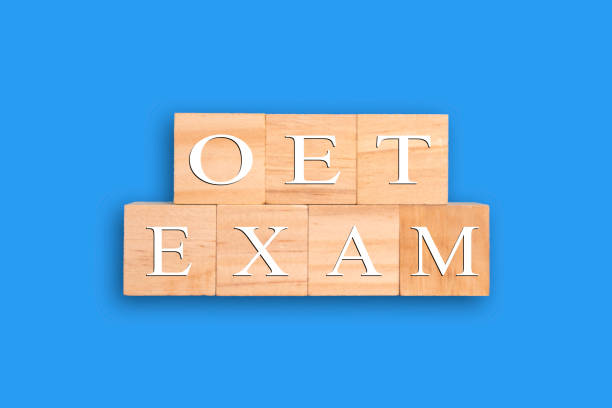MASTERING THE ART OF STUDYING: ON HOW TO STUDY for INTERNATIONAL EXAMS or for HIGHER EDUCATION.
As students in colleges and for those who prepare for international exams, preparing answers for various subjects can often feel like a difficult task. Whether you are tackling a challenging math problem, dissecting a complex literary text, or delving into any topic, effective study techniques are essential for success. Here’s a comprehensive guide to help you study any subject with confidence and efficiency: Recognize whether you are a visual or auditory learner. Tailor your study methods to match your preferred style, whether it is through visual aids, listening to lectures, or hands-on activities. Keep your notes, textbooks, and supplementary materials organized. Create a system that works for you, whether it’s using folders, digital apps or color-coding techniques. Organized materials make studying more efficient and less stressful. You can also read: What steps must be taken to prepare for study abroad and settle in rich nations such as the US, the UK, Canada, NZ and Australia. Divide the subject matter into manageable chunks. Break down complex concepts into smaller, digestible parts. This approach makes studying less difficult and allows for better comprehension. Develop a realistic study schedule that allocates time for each subject. Set specific goals for each study session and stick to your schedule to maintain consistency. Balance your study sessions to avoid boredom and maximize productivity. Engage with the material actively rather than passively. Utilize techniques such as summarizing, teaching the concepts to someone else, creating flashcards, or participating in study groups. Active learning promotes better retention and understanding. Take advantage of all available resources, including textbooks, online lectures, academic journals, and study guides. Explore supplementary materials that offer different perspectives or explanations to enhance your understanding of the subject. Practice is key to mastering any subject. Dedicate time to practise problems, solve equations, write essays or conduct experiments, depending on the nature of the subject. Regular practice reinforces concepts and builds proficiency. Don’t hesitate to seek clarification from professors, teaching assistants or classmates if you encounter difficulties understanding a concept. Asking questions and seeking help when needed is a sign of proactive learning and can prevent misunderstandings from snowballing. Minimize distractions during study sessions by finding a quiet, comfortable environment. Turn off notifications on your phone or computer and avoid multitasking. Stay focused on the task at hand to maximize productivity. Incorporate short breaks into your study sessions to recharge your mind. Schedule brief intervals to stretch, walk or grab a snack. Breaks help prevent mental fatigue and maintain concentration throughout your study sessions. Regularly review your notes and course materials to reinforce learning. Reflect on what you’ve learned and identify areas that require further attention. Use review sessions to fill in gaps in your understanding and solidify concepts. Maintain a positive attitude towards learning, even when faced with challenges or setbacks. Embrace the process of learning and view mistakes as opportunities for growth. Stay persistent and resilient in your pursuit of academic excellence. By incorporating these strategies into your study routine, you can approach any subject with confidence and effectiveness. Remember that mastering a subject takes time, dedication and perseverance. With the right mindset and study techniques, you can conquer even the most challenging academic endeavours. Want to be a part of the Best IELTS Coaching Centre in Kerala? Join now: https://bghud.com/all-courses/
A DETAILED DESCRIPTION ON IELTS EXAM

The International English Language Testing System (IELTS) serves as a gateway for individuals looking to prove their English language proficiency. Designed to meet diverse needs, IELTS offers two modules: Academic and General Training. In this comprehensive guide, we’ll explore the distinctions between these modules, helping test-takers make informed choices based on their specific goals. Purpose and Target Audience: Academic IELTS: Designed for aspiring university students and academic professionals, Academic IELTS evaluates one’s ability to understand and use complex academic language. Test-takers can expect tasks that mirror the challenges of higher education, including analyzing academic texts, writing essays, and participating in academic discussions. General Training IELTS: Tailored for individuals migrating to English-speaking countries or engaging in work-related training programs, General Training IELTS focuses on practical language skills needed in social and workplace contexts. Tasks include reading everyday texts, writing letters or reports, and engaging in conversations relevant to common social and workplace situations. You can also read: WHY CORRECT PRONUNCIATION OF ENGLISH WORDS IS VITAL TO SCORE WELL IN IELTS, OET, PTE & TOEFL? Reading and Writing Tasks: Academic IELTS: Academic reading involves interpreting passages from academic texts, while writing tasks include describing visual information, explaining diagrams, and responding to essay prompts that require a deeper understanding of complex subjects. General Training IELTS: The reading component features everyday texts like advertisements and newspapers, and writing tasks include letter writing (formal, semi-formal, or informal) and essay writing that addresses practical scenarios. Listening and Speaking Tasks: Academic IELTS: Listening tasks include comprehending academic lectures or discussions, while speaking involves discussing familiar topics, giving presentations, and engaging in discussions related to academic content. General Training IELTS: Listening involves understanding social and workplace conversations, and speaking includes discussions on familiar topics, presenting on a theme, and conversations on more abstract topics reflecting personal experiences and opinions. Scoring and Band Scale: Regardless of the module chosen, both Academic and General Training IELTS share the same scoring criteria and band scale. Test-takers receive individual scores for Listening, Reading, Writing, and Speaking, with the overall band score representing the average of these four scores. Choosing the Right Module: When deciding between Academic and General Training IELTS, it’s essential to align your choice with your specific goals. If higher education is your aim, Academic IELTS is the way to go. On the other hand, if migration or work-related endeavors are on the horizon, General Training IELTS is your ticket to success. Conclusion: In the diverse landscape of IELTS, understanding the nuances between Academic and General Training modules is key to achieving your desired band score. By tailoring your preparation to the specific demands of each module, you’ll not only navigate the test successfully but also open doors to exciting opportunities, whether in academia or the professional realm. Choose wisely, prepare diligently, and embark on your IELTS journey with confidence. Want to be a part of the Best IELTS Coaching Centre in Kerala? Join now: https://bghud.com/all-courses/
How to excel in OET Writing Module at the first attempt?

Mastering the Writing Module of Occupational English Test is the manifestation of a few skills to write a formal referral letter in clinical setting. As it is a language proficiency exam specifically designed for healthcare professionals, an OET candidate must be aware of the assessment criteria of the exam. The Writing module of the OET assesses candidates’ ability to communicate effectively in writing within a healthcare context keeping in mind the Purpose and the Content. Its conciseness, clarity, genre and style, organisation and layout, and layout are assessed. The Writing Module has only one task. The goal of the Writing section is to mimic a real-world situation and gauge a candidate’s ability to respond to typical workplace scenarios. In most cases, candidates are tasked with composing a referral letter. In addition to the communication skills in English, a candidate is expected to organize only the required information in the letter. By taking the OET Test, you will be learning the kinds of vocabulary and phrases you will need every day at work in your new country. Not only will you prove you have the right level of English – you’ll be ready to perform in the global healthcare industry. A few key aspects to consider when preparing for the OET Writing module are appended below: 1. In the OET Writing module candidates are required to produce a piece of writing that is relevant to the healthcare profession and meets the needs of the intended recipient. 2. It is crucial for candidates to understand the purpose and audience of each task. For instance, in the letter task, candidates may be asked to write a letter of introduction, explanation, or advice to a patient, colleague, or supervisor. In the referral or discharge letter task, candidates are expected to summarize a patient’s condition and treatment plan concisely and accurately. 3. Organizing the content logically is essential for clarity and coherence. Candidates should follow a clear structure for their writing, including an introduction, body paragraphs, and a conclusion. Each paragraph should focus on a single main idea and be well-developed with relevant details. 4. The language used should be professional, clear, and appropriate for the healthcare context. Candidates should demonstrate a wide range of medical vocabulary and terminology related to their specific profession. Additionally, they should pay attention to grammar, punctuation, and spelling to ensure accuracy and clarity. You can also read: How to Prepare for the OET Exam: A Comprehensive Guide 5. Time management is crucial during the exam. Candidates should allocate enough time for planning, writing, and reviewing their work. It is essential to prioritize tasks based on their importance and allocate time accordingly to complete both tasks within the given timeframe. 6. Like any other skill, writing for the OET requires practice. Candidates should familiarize themselves with the format of the exam and practice writing within a healthcare context. Taking practice tests and seeking feedback from tutors can help identify areas for improvement and enhance overall performance. In conclusion, mastering the OET Writing module requires a combination of understanding task requirements, organizing content effectively, using appropriate language, managing time efficiently, and consistent practice. By focusing on these key aspects, candidates can increase their chances of success in the OET exam and advance their healthcare career. Want to be a part of the Best OET Coaching Centre in Kerala? Join now: https://bghud.com/all-courses/
Cultural Grace in Transition: Mastering Etiquette and Manners for Seamless Integration into Progressive Societies like the UK, Canada, and the US

Moving to affluent nations like the UK and the US requires cultural awareness and adherence to specific etiquette. Punctuality is highly valued in these countries. Arriving on time for appointments and social gatherings reflects respect for others’ time. Politeness is another key aspect; using “please” and “thank you” is customary in daily interactions. These suggestions might sound silly, but they are important. As Sir Henry Royce once said, “Small things make perfection, but perfection is no small thing.” Respecting personal space is crucial. In crowded places, maintaining a comfortable distance is appreciated. Queueing patiently is a norm, whether in shops or public transport. Additionally, conversations in the UK and the US tend to involve small talk before delving into more serious matters, allowing for a friendlier atmosphere. You can also read: What steps must be taken to prepare for study abroad and settle in rich nations such as the US, the UK, Canada, NZ and Australia. Dining etiquette is significant. Table manners, such as using knife & fork and utensils properly and waiting for everyone to be served before starting to eat, are standard practices. Tipping is customary in restaurants, and it is essential to tip appropriately, typically around 10% of the bill. Understanding and respecting cultural diversity is vital. These nations embrace diversity, and individuals from various backgrounds coexist. Being open-minded, accepting differences, and avoiding stereotypes contribute to positive social interactions. Adhering to workplace norms is crucial for professional success. Punctuality, effective communication, and a strong work ethic are highly valued. Dress codes vary depending on the industry, so it is essential to be aware of the expectations in a specific workplace. In summary, adapting to the etiquette of affluent nations involves embracing punctuality, politeness, and respect for personal space. Understanding and appreciating cultural diversity, mastering dining etiquette, and adhering to workplace norms contribute to a smooth transition and positive integration into these societies. To be adaptable and to have a positive mind to learn new things are prerequisites for success in these rich nations. Want to be a part of the Best OET Coaching Centre in Kerala? Join now: https://bghud.com/all-courses/
Unlocking Nursing Excellence: Empowering Nurses with Proficient English Skills at B-GHUD Academy

The world is fast changing and so is nursing. Newer opportunities to reach excellence as a professional and as an individual knock the doors of aspiring nurses. It is always good to learn that contemporary nursing has so much more to offer than traditional nursing. In progressive nations, nursing as a profession has reached greater heights than what the same offers here in India. Nursing informatics, nursing research, nursing advocacy, entrepreneurship, intrapreneurship, tele- nursing and many more such spaces are opening up. The most needed quality to pursue any of these newer offshoots of this profession is the skill of effective communication. More and more universities across the globe have identified the need to equip aspiring nursing students with the skill to initiate and engage in professional communication in a clinical setting. Interestingly, the enrichment that happens to cognition and comprehension with the learning to use Lingua Franca efficiently is the perhaps the only tool that a nurse may need other than other professional and personal skills. Therefore, it is very much important to learn English in such a way that, the learning helps you to extend your professional frontier. Further, the training centre you choose to get trained for your English proficiency tests must be one such that gives you more than a clubbing score. It should up- skill your English. There are so many coaching centres that claim to be the best. Choose your coaching centre based on its consistent results and quality training. B-GHUD academy at Mavelikkara holds a legacy of 28 years in the field of training job aspirants across various sectors to reach their dream job. Why B-GHUD academy is different because, it keeps on challenging its own course of action. It does rigorous check of its teaching and learning processes and always keeps an open and accepting front to improve its own standards. B-GHUD academy is no opponent to any other institutes, as we regard ourselves as a developing institute even though our results have been scintillating. We have our own materials that aim not just at getting a mere gate entry score, but at providing an exhaustive experience of learning to use English with confidence, without mistakes. Learning English not limited to learning grammar. It should enable a user to comprehend and produce language with precision. This is what B-GHUD academy aims at. We are in the process of ensuring the safety of the future of young nurses and experienced nurses alike. We consider ourselves to be lucky that we are getting the opportunity to help nurses crack OET. Remember that, action speaks more than words. Our coaching is not about spewing empty promises. We value your time, effort, and money at B-GHUD academy. We welcome you to experience and learn English along with us. Let’s march forward hand and hand. When you reach your goal, we feel fulfilled. Yes dear nurse, you matter a lot to us. Your success is what makes B-GHUD academy strong.
How to select your OET Coaching Centre?

Occupational English Test is a gateway for medical and paramedical professionals to work in progressive nations. Ever since OET was established as a tool to assess English proficiency of non English speaking professionals, it has been successful in manifesting the career and personal dreams of those in real and assessable indices. However, the same drive and desire to gain a life of individual satisfaction and optimum lifestyle has led to an influx of so many coaching centres that claim to render quality training to OET aspirants, both online and offline. It is definitely a debatable topic if all of these institutes walk their talk. Ironically, so many candidates do not make the choice of institute based on educational indices. When put against marketing tricks and baits, it is definitely scientific and evidence based educational techniques and methodologies along with rigorous quality control that give a longer running and consistent victory to such coaching centres. While narrowing down the list for best OET coaching centres there are some useful markers that a candidate can use to put finger on THE BEST CENTRE. Some of them are, 1. For how long has the institute been in operation? This is the most important index, perhaps. A centre that has been functioning through the ebb and flow of time mostly has an approach to ensure maximum conversion. By the word conversion, the rate of success is emphasised. 2. What is the admission to conversion rate of an institute? It is not the bill boards or the colourful promotional videos that actually speak the true success stories. They could fairly be nothing more than promotions. However, by selecting word of mouth and interacting with alumni of the institute, an aspirant can make a wise choice. Know more about our Top OET coaching centre in Kerala 3. Does the institute have an internal auditing that goes in concurrence with academic standards to ensure language up skilling? Well, this is a prominent index to watch for. As per the changing requirements of IDP or whichever governing body that runs the test to award scores, the institute must be able to adapt and deliver coaching. This requires constant vigil and flexibility. Institutes that write textbooks and do revisions in its learning materials when coupled with above average results may be taken as one with such standardization. 4. Does the institute train differently skilled aspirants considering their individual differences in linguistic skills? Seldom institutes take up such an arduous task since it requires specially skilled teachers who are constantly given additional trainings as staff development programmes. Along with manpower, an institute would require special teaching and learning materials with the appropriate support of digitalization. So, if you are an OET aspirant, check the above mentioned markers and carefully scan through all the options while zeroing in. Want to be a part of the No. 1 OET Coaching centre in Kerala? Join now: https://bghud.com/course-registration/
Strategies for Achieving a Top OET Reading Band Score on Your First Try

OET READING IS NOT THAT DIFFICULT. HOW TO GET A HIGH BAND IN OET READING AT THE 1ST ATTEMPT? Reading is the assimilation of information and analysing THEM objectively. First, learn that reading helps is broaden our horizons, enhances our logical thinking and last but not least familiarise you with words, synonyms, antonyms, idiomatic expressions and the much needed collocations. Academic reading of OET warrants for unique skills such as the ability to comprehend the gist of a paragraph, to read between the lines and to finish answering questions within the stipulated time. If you spend your time in the exam hall, just watching others and to think of your past adventures or future dreams, you are certainly on the wrong track. Although there are many strategies to get a high score, developing a habit to reading medical articles, (if possible reading the numerous academic articles available in medical journals in the internet) should be the first step. Of all the good qualities of a competent candidate, consistent practice with a variety of OET reading materials will help you to be in a world of academic reading. It will help you become familiar with the question types and improve your reading speed, the vital aspect of this subskill and comprehension.(understanding the passage in context) You should learn to quickly skim the text to understand its main ideas and then scan for specific details required by the questions. It would be a good habit to mark important words, phrases, or information in the text that relate to the questions. This can save your time when you need to refer back to the passage. Try answering questions in order, as they usually follow the passage’s sequence. This can help you maintain a logical flow while answering. You can also read: How to crack OET at the 1st attempt? Learning to eliminate wrong answers is an art in itself. If you’re unsure about an answer, eliminate the incorrect options. This improves your chances of selecting the correct answer. Having a good collection of synonyms and the ability to paraphrase sentences will make this module easier. Focusing on synonyms and the paraphrased sentences in the text would facilitate you to answer questions correctly in the given time. Keep in mind that questions might not use the exact words from the passage. Therefore, an objective analysis of questions and the ability to answer them logically will take you a long way in getting a high band. In every global English exam your ability to manage time in the exam situation is certainly assessed. Allocate a specific amount of time per question and stick to it. Don’t spend too much time on a single question. It goes without saying that a good command of vocabulary is of great importance in OET reading. Instead of just reading a list of words and their meanings, it would be better to read them in medical situations. Enhance your medical vocabulary, as it is often used in OET reading passages. This can help you understand complex terminology in various context of healthcare. Try to learn the tone and the purpose of the passage. Assess whether the passage is informative, instructive, persuasive etc. This will help you answer questions in the right way in the time given. It is of great importance to find time to analyze your reading passages and learn from your mistakes. Every mistake should make you aware of your weaknesses and should help you avoid them. Learning from ones own mistakes is an exceptional quality of the bright. Reflect on why you got certain answers wrong and work on improving those areas. Remember, consistent practice and focused improvement in your weak areas are key to achieving a high band score in the OET reading test. You can certainly get your required score at the 1st attempt if you are focused, able to manage your time effectively, and to learn from your own previous mistakes you had made in our OET Mock Tests of Reading earlier. Wish you success in OET at the first attempt.
How to crack OET at the 1st attempt?

We would like to enlighten you on a few easy steps on how to get B band in all the 4 MODULES in OET at the 1st attempt. It is very important for you to acquaint with the test format, including the structure of each subtest (module) and the assessment criteria of OET. Learnig the marking criteria is of great importance because you have to perform well, realising the subtle aspects of this international exam of English exclusively for healthcare professionals. Determine your current English proficiency level. You may need to take a practice test to gauge your strengths and weaknesses. Invest in quality OET study materials and practice tests so that on the day of the exam you will be familiarised with the test and thereby you can avoid exam stress. Creating a study plan that allocates sufficient time for each subtest would be of great help. Consistent daily practice is essential. You should be well-versed with your language skills such as sentence structure, grammatical accuracy, the agreement of subject and verb, spelling and punctuation. Work on improving your English language skills, focusing on areas where you need the most improvement. This includes grammar, vocabulary, and pronunciation. Regularly practise sample OET questions and exercises. Practise on simulate (exam type) test conditions as closely as possible, including time limits. If possible, get feedback on your speaking and writing from a qualified OET tutor or language expert. Learn effective time management during the test is of vital importance. Allocate a specific amount of time for each task, and practise completing tasks within these time limits. Test Strategies: Familiarize yourself with test-taking strategies, such as skimming and scanning for reading, note-taking for listening, and structuring your writing and speaking responses. How to be cool and calm us a quality to be attained. On the test day, stay calm and focused. Manage your time wisely during the exam and make sure to review your work if time allows. Improving your Communication Skills is also of great importance: For the speaking subtest, practise effective communication and role-play scenarios relevant to your profession. Keep up to date with any changes or updates to the OET, as the test may evolve over time. Remember that success on the OET often comes with consistent effort and preparation. Good luck with your OET exam! You can do it, provided you allocate enough for this life changing English exam.
How to Write a Discharge Letter in OET Medicine: A Step-by-Step Guide?

In the field of medicine, effective communication is paramount. As a healthcare professional, one of the essential skills you need to possess is the ability to write a comprehensive and coherent discharge letter. The Occupational English Test (OET) assesses the language proficiency of healthcare professionals, including their writing skills. Here is a look at a step-by-step guide on how to write a discharge letter in OET Medicine from the best OET Coaching Centre in Kerala to ensurethat you convey all the necessary information accurately. Step 1: Understand the Purpose and Audience Before you start writing, it is crucial to understand the purpose of a discharge letter. Typically, a discharge letter summarizes a patient’s medical history, treatment received, and future care plans. Your audience will consist of healthcare professionals who will be involved in the patient’s ongoing care. Keep in mind that the OET assesses your ability to communicate effectively with a range of healthcare professionals, so you should write with clarity and precision. Step 2: Gather Relevant Information To write a comprehensive discharge letter, gather all the relevant information. This includes the patient’s personal details, medical history, diagnosis, treatment provided, medications prescribed, and any follow-up instructions. Make sure you have all the necessary medical records, test results, and consultation notes to refer to while writing. Step 3: Structure Your Letter A well-structured letter is easier to read and understand. Start with a formal salutation, such as “Dear Dr. [Recipient’s Last Name].” Then, introduce the patient’s name, age, and admission dates. In the main body, provide a summary of the patient’s medical history, including the reason for admission, diagnosis, and treatment received. Use clear and concise language, avoiding jargon or complex medical terms that may confuse the reader. Step 4: Include Relevant Details In the body of your letter, include all relevant details about the patient’s treatment. Describe the procedures performed, medications administered, and any significant observations made during the hospital stay. Mention any complications encountered and how they were managed. If necessary, provide recommendations for further investigations or referrals to other specialists. Step 5: Outline Follow-up Care It is essential to outline the patient’s future care plans in your discharge letter. Specify any medications to be continued or discontinued, along with the dosage instructions. If there are any lifestyle modifications or dietary restrictions, mention them clearly. If the patient requires any further appointments or tests, provide the necessary details, such as dates, times, and locations. Step 6: Proofread and Edit Once you have written the discharge letter, take the time to proofread and edit it. Check for any grammatical or spelling errors and ensure that your sentences are well-structured and coherent. Pay attention to punctuation and formatting. It is advisable to read the letter aloud to identify any awkward phrasing or unclear passages. If possible, ask a colleague or mentor to review your letter for feedback. Step 7: Maintain Confidentiality Confidentiality is of utmost importance in healthcare. Ensure that you maintain patient confidentiality throughout your discharge letter. Avoid using the patient’s full name or any other identifying information unless absolutely necessary. Use generic terms or initials instead to protect the patient’s privacy. Final Thoughts: Writing a discharge letter in OET Medicine requires careful attention to detail and effective communication skills. By following these step-by-step guidelines, you can create a well-structured and comprehensive letter that conveys all the necessary information to the recipient. Remember to practice regularly to improve your writing skills, and seek feedback from experienced professionals to enhance your performance in the OET.
WHY A HIGH BAND IN IELTS, OET & PTE ARE VERY IMPORTANT

All job aspirants who aspire to go to progressive nations to study, work, or to migrate should aim for a high score in these mandatory Global English exams. Of course, YouTube channel players occasionally celebrate breaking news just for their financial gains: NO IELTS REQUIRED ONLY 5.5 BAND IS ENOUGH CBSE/ICSE CERTIFICATES ARE ENOUGH. All these are only partial truths. I have been teaching all these exams for 26 years and have been dealing with many consultancies that facilitate students and migrants in reaching their dream destinations. On many occasions in the past, I could read this baseless news and experienced that only when students get a high band can succeed in getting admission to the college of their preference and succeed in getting a visa to these rich nations. As such, I earnestly request you to separate the wheat from the chaff and learn the truth. Consult sensible experts who are in this field at least for a few years and then you take your own decisions. Now we have a good number of candidates from abroad taking online training from us on IELTS, OET, PTE & TOEFL. Please note that there are only very few training centres in these developed nations and they charge huge sums of money for training candidates for a few hours on certain days. Their priority is not your success but what they get in financial terms. Media in general, social media in particular, seem to be not taking any responsibility if anything goes wrong in your life when you reach abroad because of their baseless news. Unfortunately, amid the explosion of information and when the truth is available at your fingertip, please find the truth from any official website and consultancies with some credibility. Taking these exams before you fly from here would be better because : 1. A high band in these exams will help you get your visa easily. 2. A good score will help you get admission to prestigious institutions. 3. Once you complete your education, of all your certificates the most valuable one will be your IELTS or an equal certificate in global exams. 4. During the time of getting a rewarding part-time job or when attempting for promotion your high band will have a great impact in molding your future.
